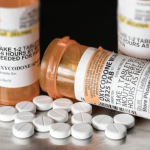(Reuters)—New Jersey on Tuesday sued Purdue Pharma LP, accusing the OxyContin maker of contributing to the state’s opioid crisis through deceptive marketing to doctors and patients, including the elderly and the “opioid-naive.”
Christopher Porrino, the New Jersey attorney general, faulted what he called a decade-long marketing campaign of “almost inconceivable callousness and irresponsibility, and said Purdue downplayed the risks of opioids and exaggerated their benefits in the pursuit of profit.
The 103-page lawsuit filed in Essex County Superior Court accused the privately held company of engaging in unconscionable practices, making false claims and creating a public nuisance, while costing the state hundreds of millions of dollars in prescription costs.
“We vigorously deny these allegations and look forward to the opportunity to present our defense,” Purdue said in a statement. “We are deeply troubled by the opioid crisis and we are dedicated to being part of the solution.”
Many state and local governments have filed lawsuits to hold drugmakers accountable for a nationwide opioid epidemic, which President Donald Trump last Thursday called a national public health emergency.
Opioids, including prescription painkillers and heroin, played a role in 33,091 U.S. deaths in 2015, an increase of 16% from 2014, according to the U.S. Centers for Disease Control and Prevention.
New Jersey said Purdue deceived doctors and patients into believing OxyContin, which is used to relieve pain, and other opioids could treat chronic pain over the long term, as an alternative to over-the-counter pills such as Advil and Tylenol, even though there were no studies showing their safety and effectiveness beyond 12 weeks.
Purdue pushed sales representatives to visit as many as 40 doctors a week in person to promote opioids, and set annual prescription quotas as high as 8,400 for OxyContin alone, according to the lawsuit.
A former sales rep was quoted as saying she knew OxyContin dosages would rise as patients’ tolerances increased, and struggled to meet her quotas because she thought patients should not “go down that road” if they had safer alternatives.
OxyContin was launched in 1996.
Purdue has faced similar lawsuits by at least nine other U.S. states, several cities and counties.
Last Wednesday, Purdue said it was cooperating with a U.S. Department of Justice probe related to OxyContin.
In 2007, the company and three executives pleaded guilty to misbranding OxyContin and agreed to pay $634.5 million to resolve a separate Justice Department investigation.


